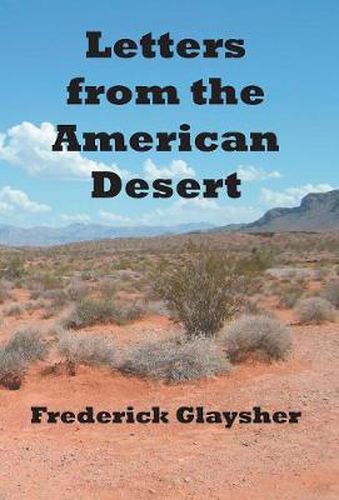Readings Newsletter
Become a Readings Member to make your shopping experience even easier.
Sign in or sign up for free!
You’re not far away from qualifying for FREE standard shipping within Australia
You’ve qualified for FREE standard shipping within Australia
The cart is loading…






Drawing on his experience living in Asia and Arizona, as well as his reading of classical literature, both East and West, Frederick Glaysher invokes a global vision beyond the prevailing conceptions entrenched in postmodernism and postmodernity. In Letters from the American Desert, Glaysher reflects on the cultural, political, and religious history of Western and non-Western civilizations, pondering the dilemmas of postmodernity, in a compelling struggle for spiritual knowledge and truth. Fully cognizant of the relativism and nihilism of modern life, Glaysher finds a deeper meaning and purpose for the individual and the world community in the writings and global vision of Baha'u'llah, as expressed in the Reform Bahai Faith. Confronting the antinomies of the soul, grounded in the dialectic, Glaysher charts a path beyond the postmodern desert. Alluding to Martin Luther and W. B. Yeats at All Souls Chapel, Glaysher invites readers to consider the implications of the universal, moderate form of the Bahai Teachings as interpreted by Abdu'l-Baha, Baha'u'llah’s son, who had spoken throughout the West in Europe, England, and the United States from 1911 to 1913. Abdu'l-Baha’s message of the oneness of God, all religions, and humankind holds out a new hope and vision for a world in spiritual and global crisis. Far from a theocracy, the Reform Bahai Faith envisions a separation of church and state as the will of God, in harmony and balance with universal peace, in a global age of permanent pluralism, in a world of multiplicity, where religion is a reflection of individual distinctiveness, not of communal identity.
$9.00 standard shipping within Australia
FREE standard shipping within Australia for orders over $100.00
Express & International shipping calculated at checkout
Stock availability can be subject to change without notice. We recommend calling the shop or contacting our online team to check availability of low stock items. Please see our Shopping Online page for more details.
Drawing on his experience living in Asia and Arizona, as well as his reading of classical literature, both East and West, Frederick Glaysher invokes a global vision beyond the prevailing conceptions entrenched in postmodernism and postmodernity. In Letters from the American Desert, Glaysher reflects on the cultural, political, and religious history of Western and non-Western civilizations, pondering the dilemmas of postmodernity, in a compelling struggle for spiritual knowledge and truth. Fully cognizant of the relativism and nihilism of modern life, Glaysher finds a deeper meaning and purpose for the individual and the world community in the writings and global vision of Baha'u'llah, as expressed in the Reform Bahai Faith. Confronting the antinomies of the soul, grounded in the dialectic, Glaysher charts a path beyond the postmodern desert. Alluding to Martin Luther and W. B. Yeats at All Souls Chapel, Glaysher invites readers to consider the implications of the universal, moderate form of the Bahai Teachings as interpreted by Abdu'l-Baha, Baha'u'llah’s son, who had spoken throughout the West in Europe, England, and the United States from 1911 to 1913. Abdu'l-Baha’s message of the oneness of God, all religions, and humankind holds out a new hope and vision for a world in spiritual and global crisis. Far from a theocracy, the Reform Bahai Faith envisions a separation of church and state as the will of God, in harmony and balance with universal peace, in a global age of permanent pluralism, in a world of multiplicity, where religion is a reflection of individual distinctiveness, not of communal identity.